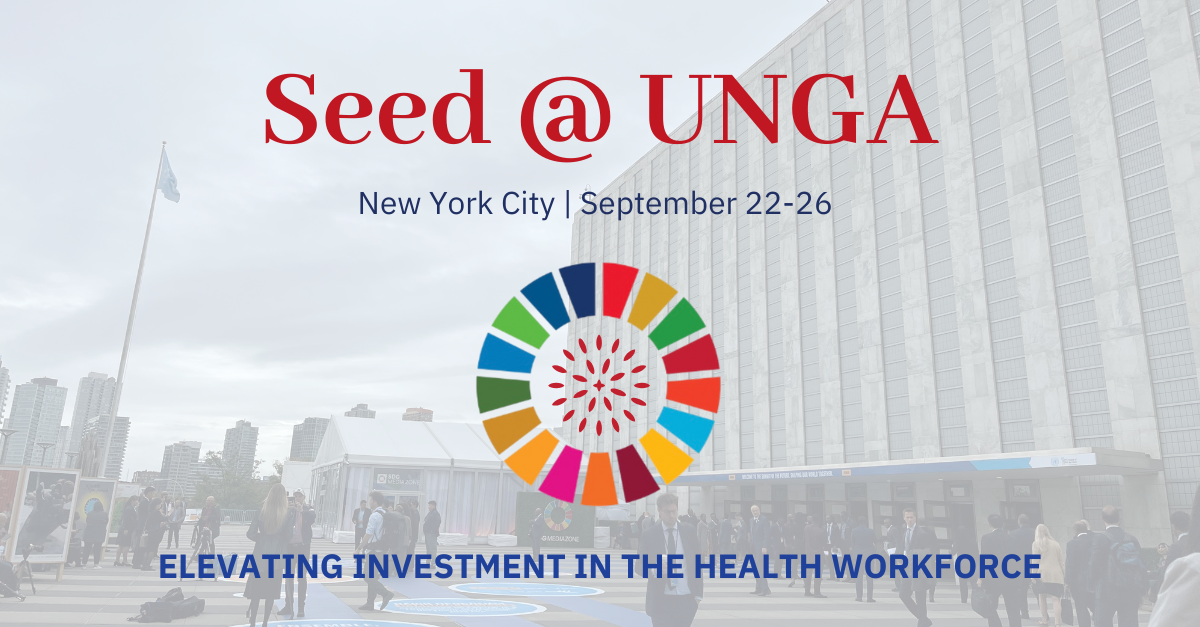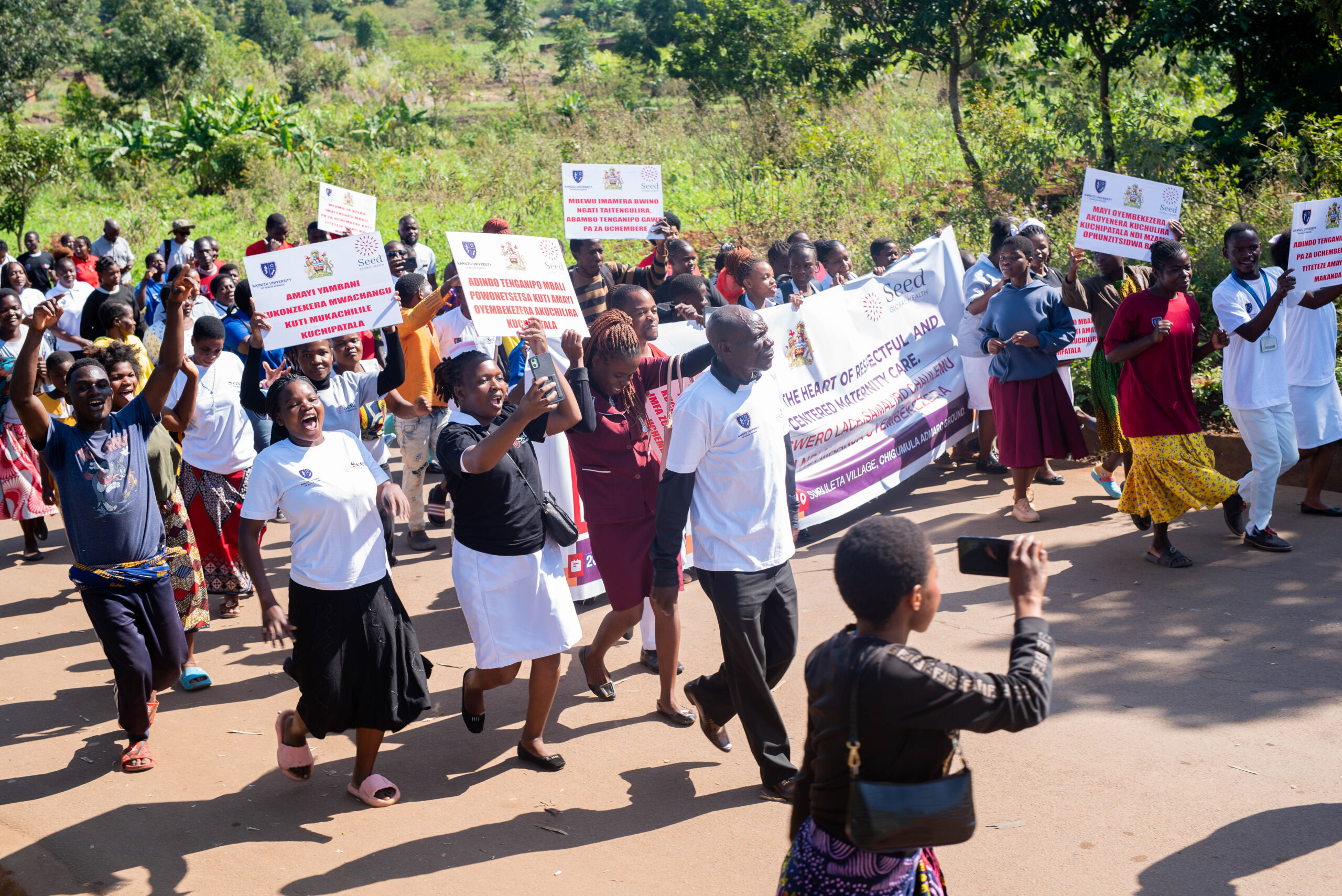Update from #WHA72: Investing in Jobs for #HealthForAll
Universal health coverage (UHC) has been at the center of discussions across sessions and side events at this year’s World Health Assembly (WHA). How do we ensure that all people and communities have access to and receive the health services they need without suffering financial hardships? It starts with investing in the health workforce—the backbone of strong health systems. Health workers are the missing link that will bridge the gaps in access to care and accelerate movement toward achieving universal health coverage.
This afternoon, while at WHA, we attended a WHO-sponsored technical briefing on investing in jobs for health for all. We had the opportunity to present a variation of the below statement emphasizing the critical need to make the essential investment in health workers:
Investing in the healthcare workforce, including health professionals and across the full continuum of service delivery, is the key to eliminating the two standards of care that exist in the world. This investment ensures a pipeline of health workers who can:
- Deliver quality care,
- Provide ongoing education across the health workforce,
- Problem solve, and
- Ensure that health systems are not ravaged by health crises but respond to and even prevent them.
Let’s consider West Africa in 2014, for example, where what started with a single case in Guinea led to more than 28,000 cases of Ebola; caused over 11,000 deaths, including over 230 health workers lives lost; spanned six countries and three continents, and became a U.S. $53 billion economic hit. The Ebola outbreak had a devastating impact on individuals, communities, and the health systems. The disruption of the health systems, particularly in Guinea, Liberia, and Sierra Leone, has since led to many more lives lost. It is projected that deaths from measles because of the resulting disruption of health services may have exceeded those from Ebola.
Health workers, including physicians, nurses, and midwives are essential. We have made many meaningful interventions and a lot of progress in health over the past decades. However, we have not fulfilled our full promise because we have never completely and deeply invested enough in a comprehensive healthcare workforce. We must embrace that training health workers effectively, building complete health workforce teams, and ensuring sustainability requires a long and deep investment and that is required to achieve our health, economic, and security goals.
We live in a digital age. While technology and innovation can advance healthcare, they cannot by themselves eliminate the health disparities that communities grapple with. We cannot ignore the human-centered nature of healthcare delivery.
These facts are not new. The evidence on the impact of health investment is well-established. In all our discussions this week, from UHC to biosecurity to alleviation of noncommunicable diseases to our SDG agenda, one thing is clear—an empowered and complete workforce is essential. The time to move from evidence and discourse to global action and investment is now.
Seed Global Health is dedicated to supporting such commitments. It is only through strong collaboration across sectors and making these essential investments that we can equip the health workforce to deliver high-quality care and ensure health for all.

